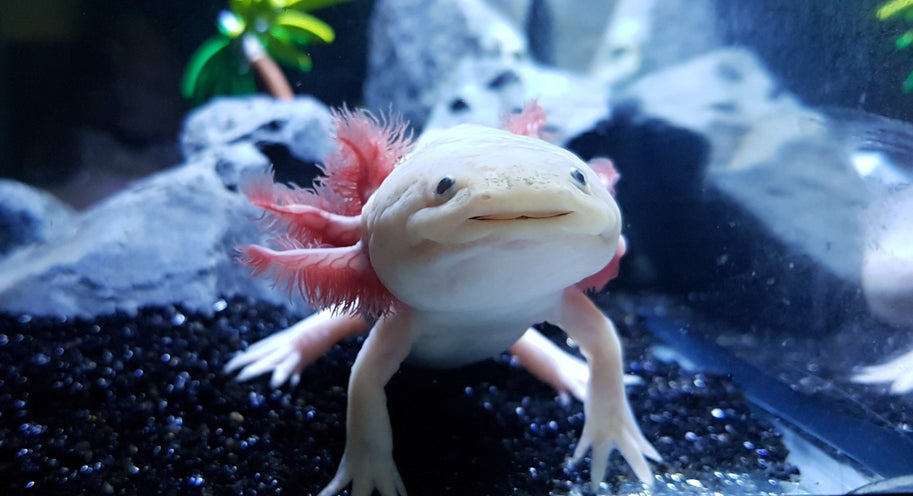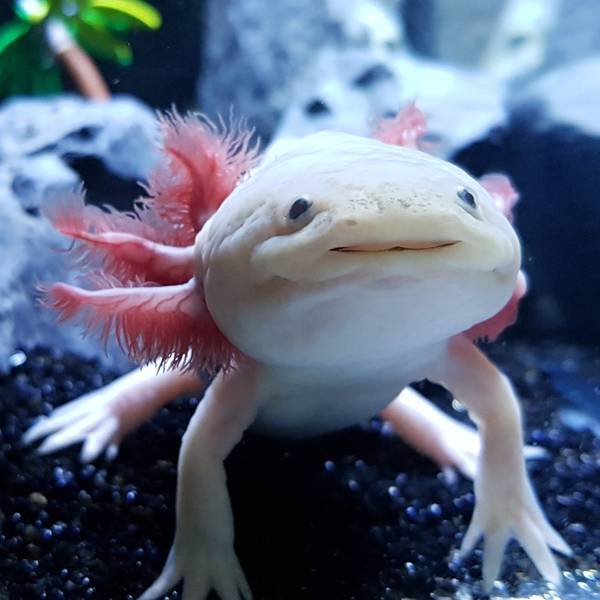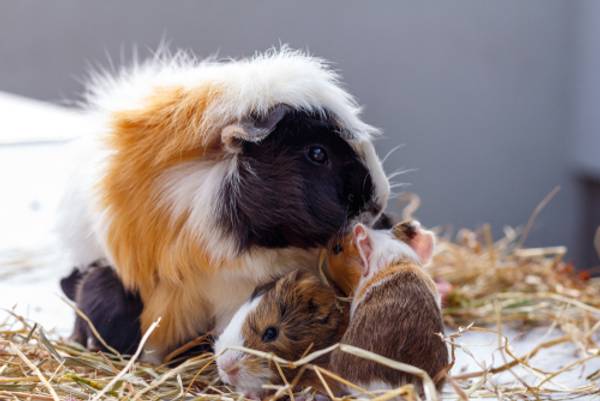Mexican walking fish are fascinating creatures looking, and often acting, like miniature pre historic monsters.
These animals can grow up to 30cm in size make excellent pets, living up to 10 years.
Axolotls are the larval stage of a salamander, and are different from other amphibians in that they have the ability to reproduce while remaining a sexually mature larva. They also have the ability to undergo metamorphosis (similar to a tadpole changing into a frog) and change to an air breathing,
land dwelling, salamander, but this very seldom occurs. It seems that most strains have now lost the ability to metamorphose. Mexican walking fish come in various colours, including dark brown , olive, black, albino and golden (pictured above) forms, (which have bright pink gills) and a piebald (spotted) form, which is seldom seen.
The name walking fish refers to the animal's habit of walking whilst under water. They should not be removed from their aquarium and forced to crawl on land, as they cannot breathe out of water.
Housing
Axolotls are best housed in conditions similar to goldfish, as their water requirements are very much the same. An aquarium 60cm x 30cm x 30cm will house a full grown pair of axolotls. The tank should be aerated and filtered, axolotls extract oxygen from water through their gills, so water quality is very important to their wellbeing. A regular partial water change helps remove excess waste compounds and keeps the pH from dropping as axolotls can be quite messy eaters. Using a little crushed coral or shell grit in the filter is also a good way of achieving pH stability. Lighting is best kept moderately dim, as axolotls are somewhat nocturnal in nature, with albino forms becoming stressed under bright light. Axolotls have poor eyesight and can often ingest gravel when feeding - causing a number of intestinal issues, so it is advised to either keep them in a bare bottom tank or with a fine substrate (eg less than 2mm).
Feeding
Earthworms are by far the most suitable food for walking fish. To ensure earthworms can't bury out of reach in the aquarium gravel, where they would die within a few days, its best to limit gravel depth to a single layer of smooth standard aquarium gravel only a few millimeters thick.
An occasional feed of finely cut lean beef may be offered, but if fed regularly the fat in red meat would almost certainly lead to health problems such as fat accumulation in internal organs. Sinking fish pellets may also be offered. Feeding every second day is usually sufficient. Requirements for food vary with temperature, they normally refuse to eat if the temperature falls below 10¶øC or goes much above 20øC.
Their preferred eating time is at dusk. Always remember to remove any uneaten food or pollution will occur.
Compatibility
Individuals may attack others in the tank if sufficient shelter is not provided. Rocks, plants and cut plastic pipes are suitable.
It is most interesting, that in the event of a limb or portion of the animal being bitten off, it will regenerate. The damaged individuals are best isolated and given extra food and attention. The regeneration process seems to be more rapid at lower temperatures.
Axolotls have a large wide mouth, well adapted for preying on fish, and therefore fish should not be kept in the same aquarium.
Ideal water quality
- Temperature: 10¶øC - 20¶øC.
- pH: 7.0-7.5
- General Hardness: 50-150 ppm.






